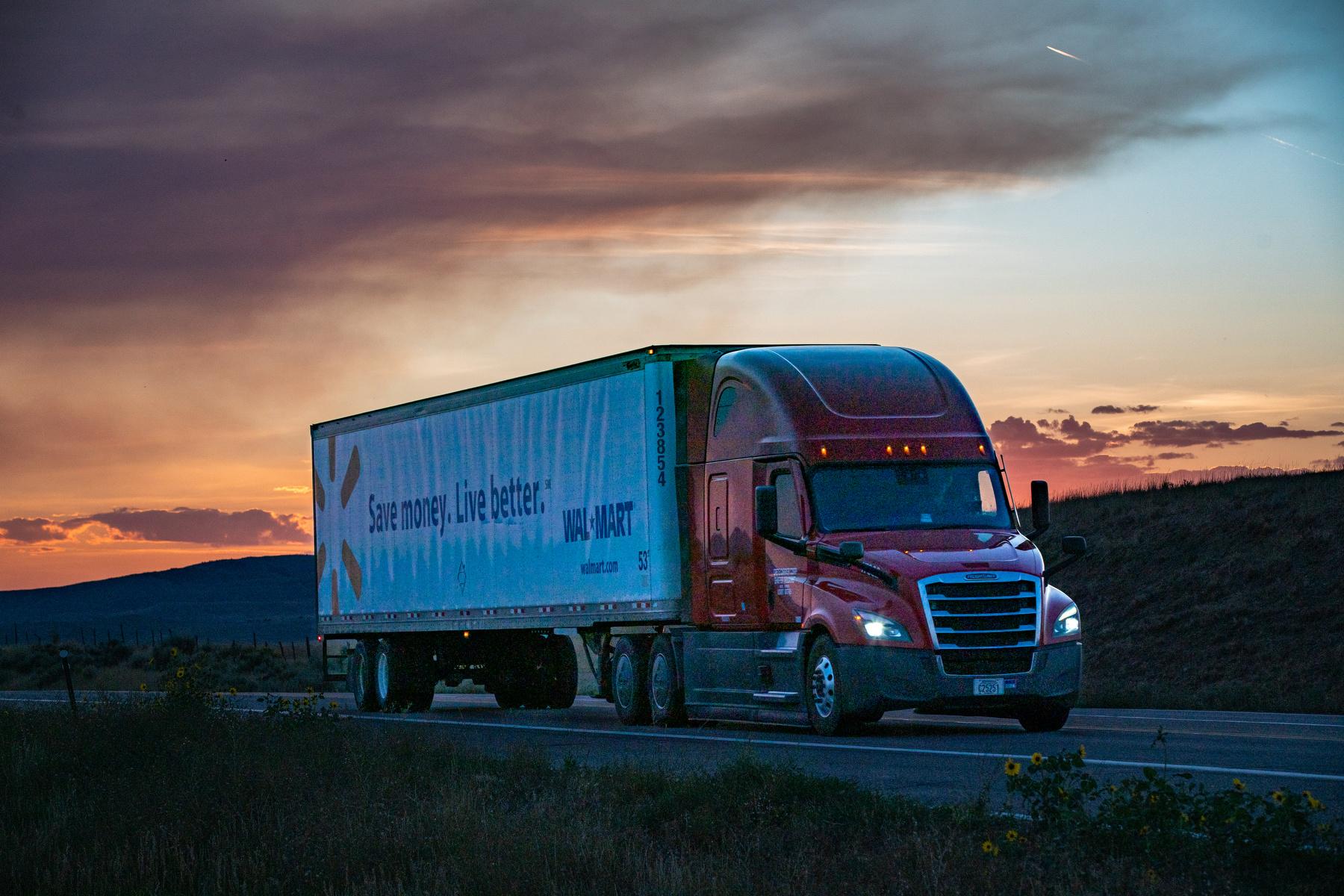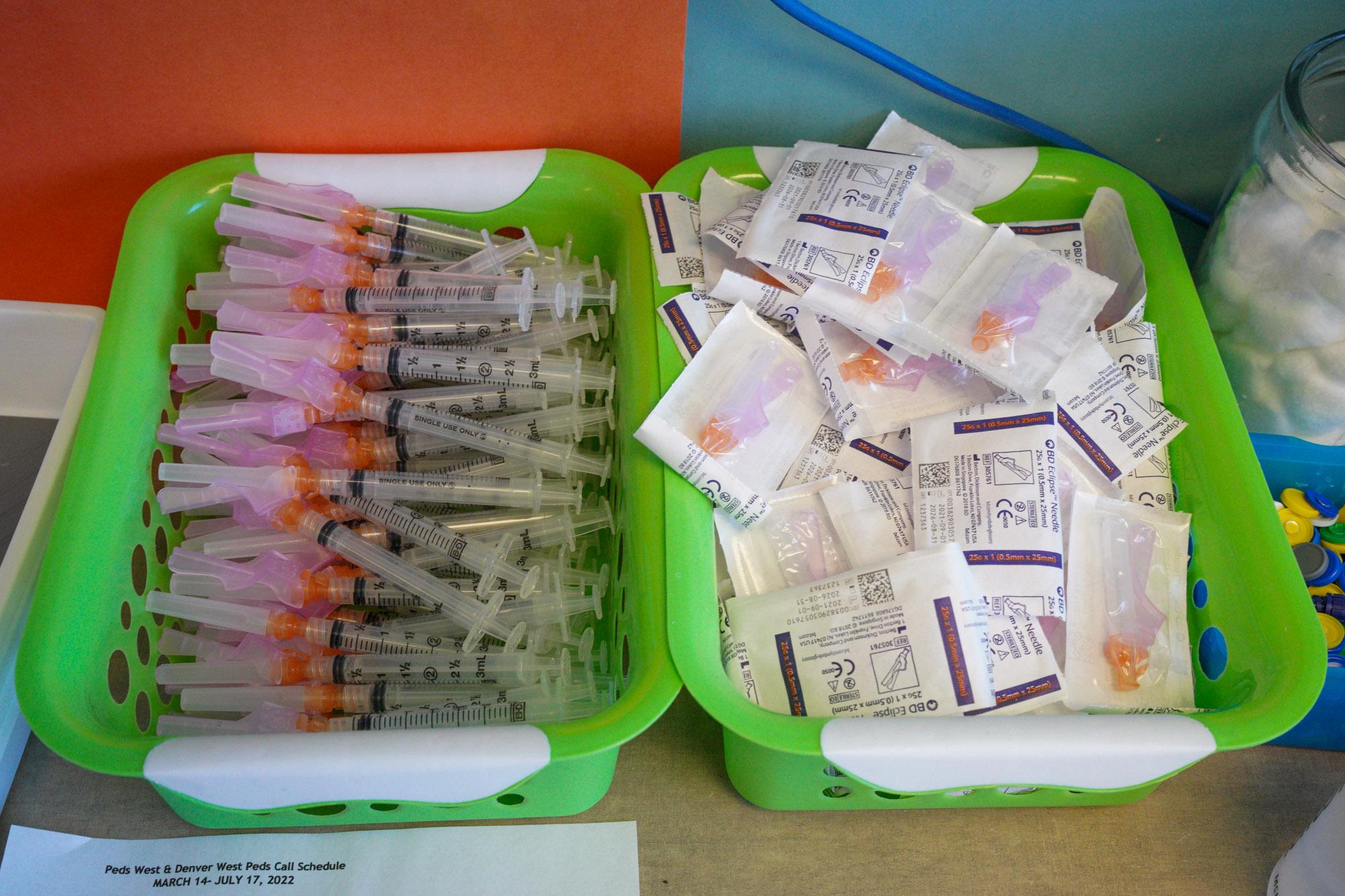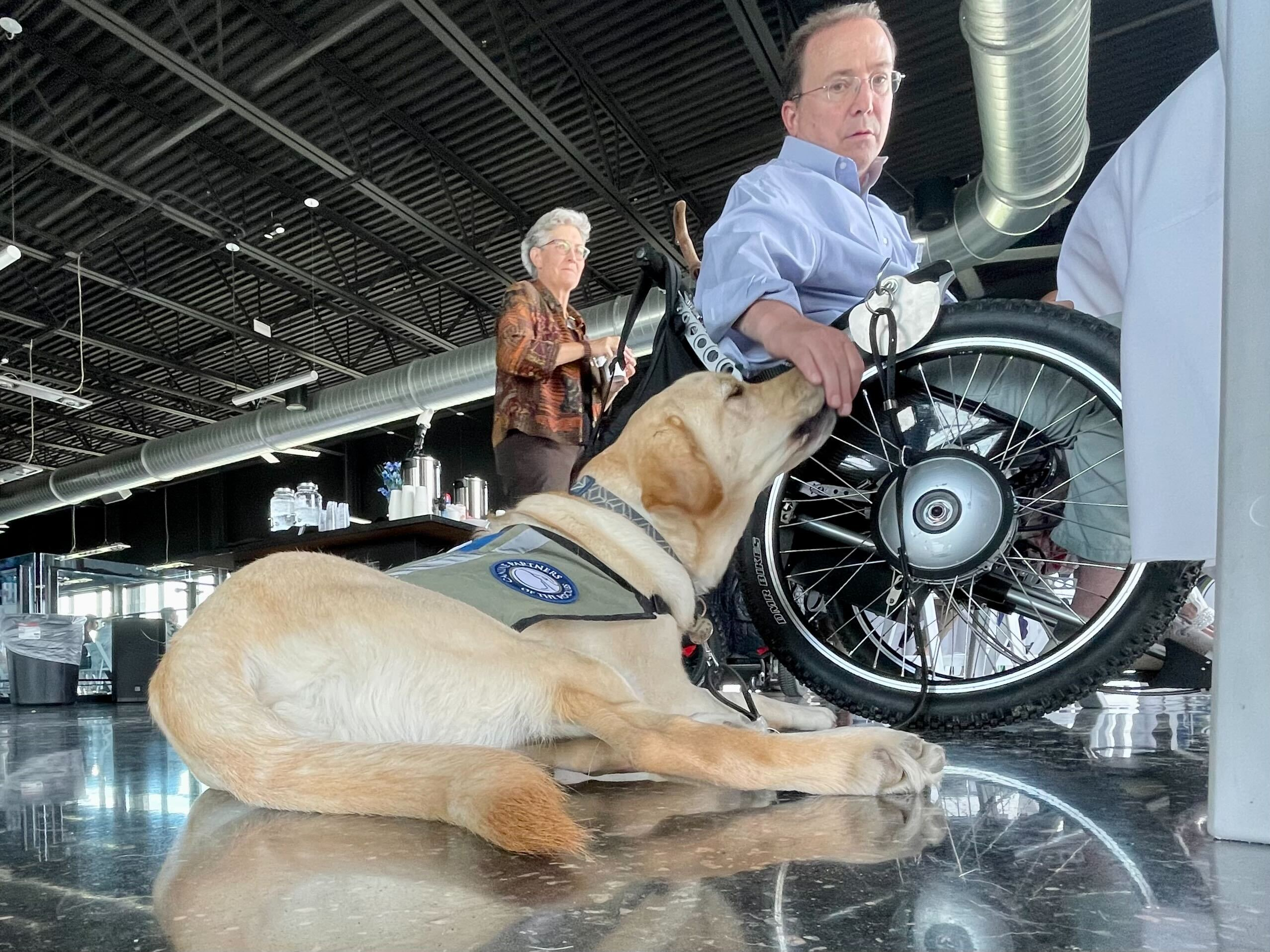
It’s graduation season again, and not just for humans.
Six dog owners gathered for a brunch and ceremony on Sunday to celebrate their pups’ completion of service training programs at Canine Partners of the Rockies. The hounds, all around 2- and 3-years-old, have been trained since puppyhood to fulfill different service jobs, like mobility or autism support.
The graduating class was small. Canine Partners trainer Isabell Park said that’s because not every dog is cut out for a service dog lifestyle.
“Their health, their behavior, their temperament, their love for work really shows with these dogs,” Park said. “And those are really important because they're gonna be doing this out with a person for the rest of their lives.”
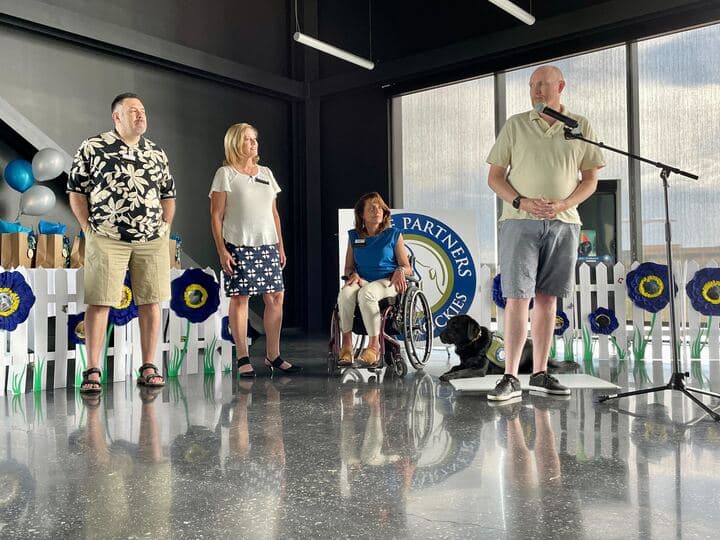
Once puppies not cut out of a service dog lifestyle are filtered out of training, they work with people with Park to work on advanced skills. Park said she taught the graduating dogs a wide variety of skills, like providing stability for those with mobility issues or identifying signs of distress.
Potential owners go through a rigorous, months-long screening and training process, to make sure they’re able to care for a service dog. For the first year after adoption, the owner is screened monthly to ensure the partnership is working out for both parties.
Different roles for different dogs
Josh McKennet, a recent retiree who worked at Children’s Hospital Colorado for most of his career, adopted Carson, a blonde labrador retriever, just two months ago. McKennet has lived with multiple sclerosis since 1989, and he recently bought his first wheelchair to help with mobility.
He said Carson helps him maintain a day-to-day routine.
“Carson picks things up for me,” McKennet said. “He opens and closes doors and cabinets. He turns on and off a couple lights.”
While some pups help with physical tasks, other graduating dogs help their people navigate mental obstacles. Amy Grossinger, a school psychologist at Lena Archuleta Elementary School in Denver, raised Willow as a puppy in hopes she’d become a mobility service dog.
But, as time went on, it became clear that she would thrive serving students with emotional and behavioral disabilities. Willow now goes to school alongside Grossinger.
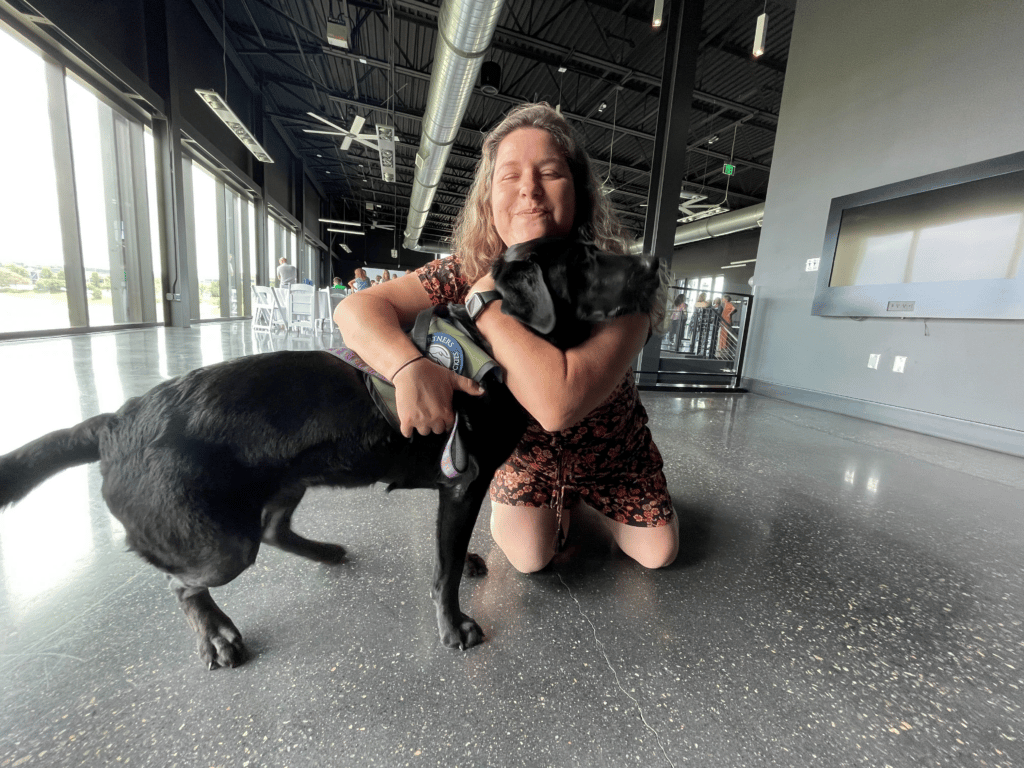
“Oftentimes, I will go into classrooms to just teach general education students and she'll go in and seek out the students who are having a tough day and she'll find them and sit right next to them,” Grossinger said.
With the youth mental health crisis intensifying due to the continued effects of the pandemic, social media, violence both within and outside the country, and more, Grossinger called for schools to devote resources toward support dog services.
Having a service dog means a give-and-take partnership
Even once the dogs are done with training, their adjustment period isn’t over. Many of the owners just started caring for their dog, and it’ll take months for the dogs to adapt to new surroundings and gel with new routines.
And while service dogs are renowned for taking care of their humans, it is often overlooked that they need just as much care from their owners.
“Our world is pretty scary and intimidating, especially for a dog that has only been in the world for a couple of years,” Park said “So their person needs to advocate for their safety.”
People who need mobility assistance or psychiatric support can apply to adopt trained dogs through several agencies in Colorado, including Canine Partners of the Rockies and Domino Service Dogs. Emotional support animals and therapy dogs are not the same as service dogs and do not have the same federally protected rights as formally trained animals.

